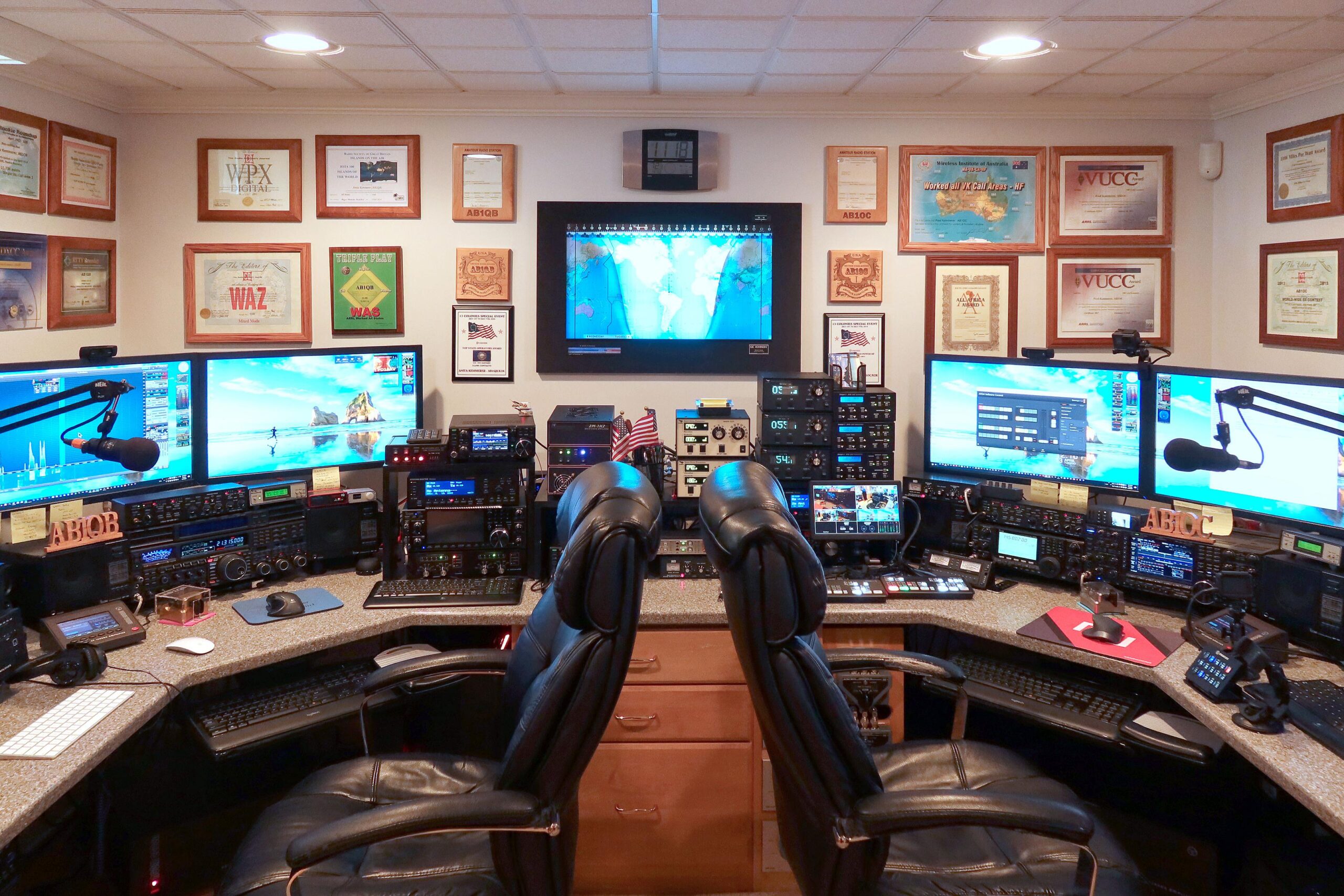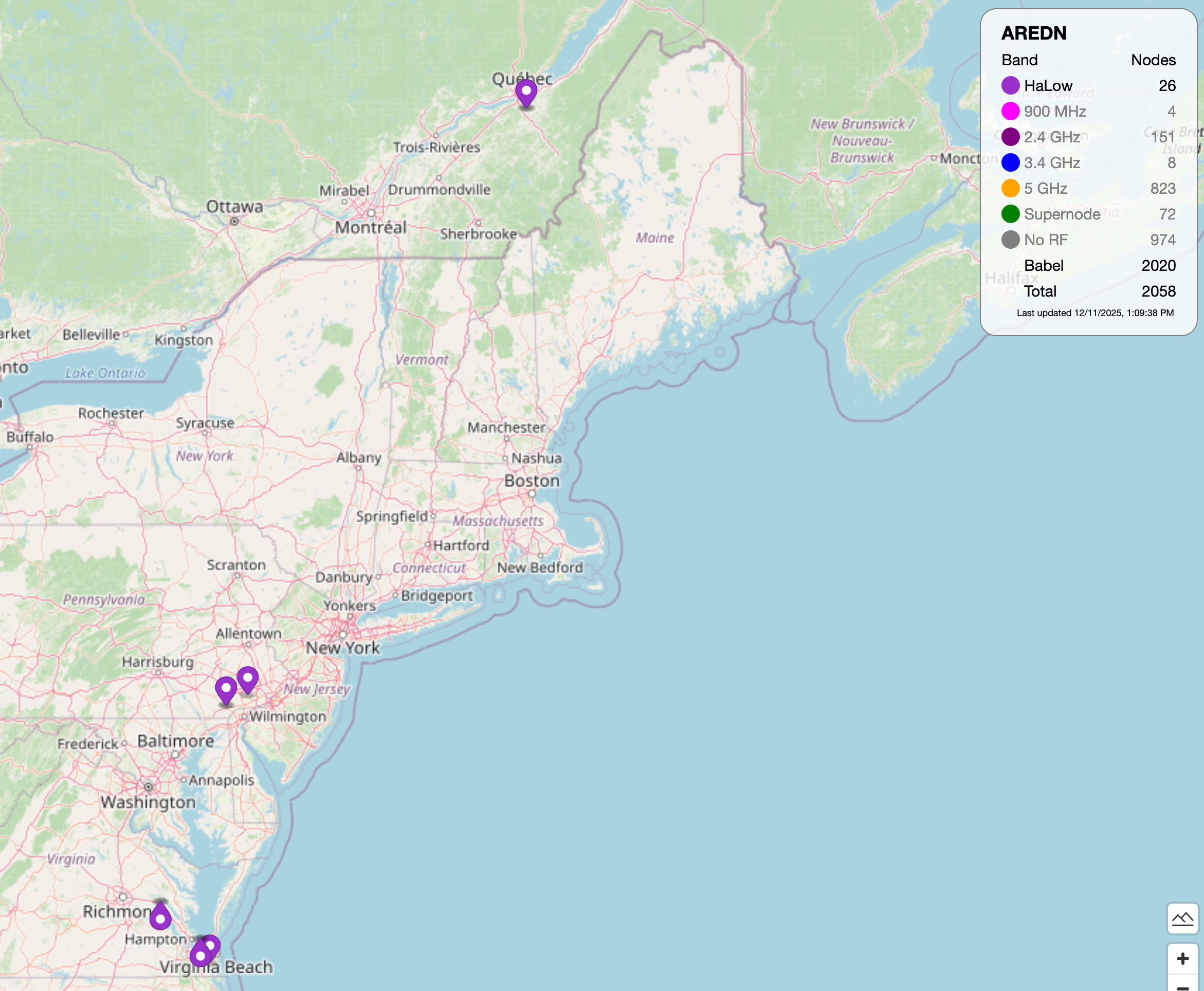Forum Replies Created
-
AuthorPosts
-
 AB1OC-AB1QB Shack
AB1OC-AB1QB ShackYou can find more information about our station on our blog at stationproject.com.
December 15, 2025 at 7:11 pm in reply to: New AREDN Core Network – Join Us on Saturday and/or Next Week #159333FB Emily. BTW, we are having a Winter Field Day prep session this Saturday at our ATH (AB1OC-AB1QB). Several folks will be here to set up software and antennas in prep for Winter Field Day.
I am also planning to host an AREDN Router party on Saturday. If you can make it, bring your router, and we’ll help you get it going.
vy 73,
Fred, AB1OC
The weather is expected to be very cold with strong winds again tomorrow, so we’ve decided to postpone the installation of the AREDN links yet again. Matt, KC1XX, will be away until sometime in 2026, so we’ll be rescheduling the project when he returns. We’ll let everyone know what the updated plans are via a post here.
December 14, 2025 at 4:15 pm in reply to: New AREDN Core Network – Join Us on Saturday and/or Next Week #159330Frank, KC1ONH, and I made quite a bit of progress on building the new core system on Saturday. Today is about fine-tuning what we installed on Saturday to optimize cooling.
Frank and I are planning to configure the new core and get it operational on Monday (tomorrow, 12/15), starting at 9 am at my QTH. We’re also going to set up Frank’s router to get him on the AREDN mesh.
Folks are invited to join us in working on the project tomorrow.
FB Emily. I am planning to continue work on the new core network rack here next week. Would you like to come by one day next week and give me a hand? I should be at the stage where I am cutting over some AREDN services from the existing core network to the new one.
Here’s some more information about the current setup here –
https://homelab.anita-fred.net/
The new core setup we are working on is covered on slides 24-27 and from slide 33 onward in the recent Tech Night materials here.
Can you tell us about your homelab and networking setup? It sounds interesting.
BTW, we also have an AREDN RF site in Westford, MA which might provide another option…
Thanks, Emily. The coordinates I gave you are ground level. I have a 100-ft tower here and could elevate a 900 MHz antenna to about 80-90 ft above the level in your current model. Do you think that might work?
It would be an interesting project to link the AREDN and meshtastic networks via RF. Alternatively, we could look at using an inexpensive tunnel router at your location.
Some more links on HaLow devices and networks that run AREDN –
This link is intermittently unavailable, so if you don’t get there, try again later.
https://www.arednmesh.org/content/halow-hardware
Here’s the info on the Bable nightly build support for HaLow –
Emily, if you want, take a look at possible propagation on 900 MHz from where you are to my QTH (coordinates are available on QRZ.com). A good tool to use for this is Radio Mobile.
Dave, K1BER, has done work with this program as part of preparing for some operations on 902 MHz for Winter Field Day.
Thanks, Emily. It’s great that you are leading the way here. Do keep us up to date on how it goes and share what you’re learning about as you go.
HaLow support for AREDN is fairly recent. It looks like a few sites in the eastern US are support HaLow applications –

-
AuthorPosts
